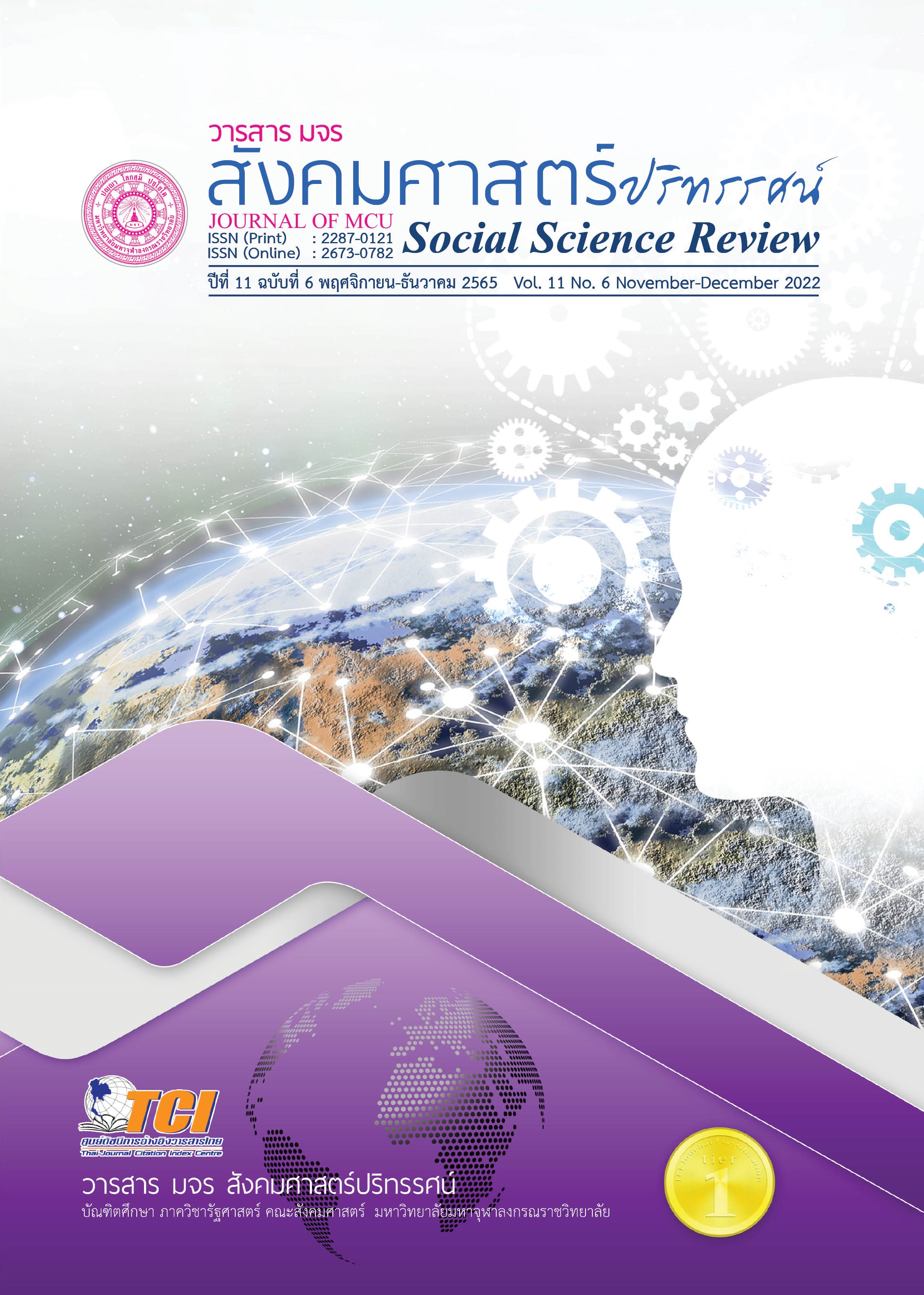การพัฒนากลยุทธ์การยกระดับคุณภาพการเรียนรู้วิทยาศาสตร์ ของนักเรียนระดับมัธยมศึกษาตอนต้น ในโรงเรียนขยายโอกาส สังกัดสำนักงานเขตพื้นที่การศึกษาประถมศึกษากำแพงเพชร
คำสำคัญ:
กลยุทธ์, คุณภาพการเรียนรู้วิทยาศาสตร์, โรงเรียนขยายโอกาสบทคัดย่อ
งานวิจัยนี้มีวัตถุประสงค์เพื่อศึกษาสภาพ ปัญหา ปัจจัยที่เกี่ยวข้อง เพื่อพัฒนากลยุทธ์ และประเมินกลยุทธ์การยกระดับคุณภาพการเรียนรู้วิทยาศาสตร์ ของนักเรียนระดับมัธยมศึกษาตอนต้น เป็นการวิจัยแบบผสมผสาน กลุ่มตัวอย่างที่ใช้ในการวิจัยเชิงปริมาณ ได้แก่ ผู้บริหารโรงเรียน ครูผู้สอน และศึกษานิเทศก์ จำนวน 170 คน โดยใช้ตารางเครจซีและมอร์แกน กำหนดขนาดกลุ่มตัวอย่าง วิธีการสุ่มแบบแบ่งชั้น ในการวิจัยเชิงคุณภาพ ผู้ให้ข้อมูลสำคัญได้แก่ ผู้เชี่ยวชาญ 10 คน จากการเลือกแบบเจาะจง เครื่องมือที่ใช้ ได้แก่ แบบสอบถามที่มีค่าความเชื่อมั่นเท่ากับ 0.89 และประเด็นคําถามในสนทนากลุ่ม การสัมมนาอิงผู้เชี่ยวชาญ การร่าง ตรวจสอบ และประเมินกลยุทธ์ สถิติที่ใช้ในการวิเคราะห์ข้อมูล ได้แก่ ร้อยละ ค่าเฉลี่ย ส่วนเบี่ยงเบนมาตรฐาน สรุปการสัมมนาอิงผู้เชี่ยวชาญ โดยการวิเคราะห์เนื้อหา
ผลการวิจัย พบว่าสภาพการยกระดับคุณภาพการเรียนรู้วิทยาศาสตร์ ผู้บริหาร ครูผู้สอน และศึกษานิเทศก์ มีการปฏิบัติตามบทบาทหน้าที่ที่ได้รับมอบหมายอย่างชัดเจน ส่วนปัญหาอยู่ในระดับมากที่สุดคือ ด้านการนิเทศการศึกษา ปัจจัยที่เกี่ยวข้องที่มีค่าเฉลี่ยสูงกว่าด้านอื่น คือ ด้านวัสดุอุปกรณ์ สถานที่ กลยุทธ์การยกระดับคุณภาพการเรียนรู้วิทยาศาสตร์ ที่พัฒนาขึ้นประกอบด้วย 3 วิสัยทัศน์ 3 พันธกิจ 3 เป้าประสงค์ 3 ประเด็นกลยุทธ์ 9 กลยุทธ์ 17 ตัวชี้วัด และ 34 มาตรการ 3. ผลการประเมินกลยุทธ์ มีความสอดคล้อง ความเหมาะสม ความเป็นไปได้ และความเป็นประโยชน์ อยู่ในระดับมากที่สุด ผ่านเกณฑ์ทุกรายการ
เอกสารอ้างอิง
กระทรวงศึกษาธิการ. (2560). มาตรฐานการเรียนรู้และตัวชี้วัดกลุ่มสาระการเรียนรู้คณิตศาสตร์ วิทยาศาสตร์และสาระภูมิศาสตร์ในกลุ่มสาระการเรียนรู้สังคมศึกษา ศาสนา และวัฒนธรรม(ฉบับปรับปรุง พ.ศ. 2560). กรุงเทพฯ: โรงพิมพ์ชุมนุมสหกรณ์การเกษตรแห่งประเทศไทย จำกัด.
กาญจนา มหาลี และชาตรี ฝ่ายคำตา. (2553). ความเข้าใจธรรมชาติวิทยาศาสตร์ของนักเรียนชั้นมัธยมศึกษาปีที่ 1. วารสารสงขลานครินทร์ฉบับสังคมศาสตร์และมนุษยศาสตร์, 16(5), 795-809.
เชาวฤทธิ์ จงเกษกรณ์. (2547). การนิเทศเพื่อปฏิรูปการศึกษาและพัฒนาการเรียนรู้. กรุงเทพฯ: ธารอักษร.
ณรงค์วิทย์ แสนทอง. (2551). การบริหารผลงานเชิงกลยุทธ์. กรุงเทพฯ: ซีเอ็ดยูเคชั่น.
ธีระ รุญเจริญ. (2550). ความเป็นมืออาชีพในการจัดและบริหารการศึกษายุคปฏิรูปการศึกษา. กรุงเทพฯ: แอล. ที. เพรส.
บุญชม ศรีสะอาด. (2553). การวิจัยเบื้องต้น (พิมพ์ครั้งที่ 8). กรุงเทพฯ: ไทยวัฒนาพานิช.
ภมรศรี แดงชัย. (2556). กะเทาะอุปสรรคครูไทย. สืบค้นจาก 1 ตุลาคม 2561, จาก http://www.qlf.or.th/Home/Contents/570.
เรวัตร์ ชาตรีวิศิษฏ์ และคณะ. (2552). การจัดการเชิงกลยุทธ์ Strategic Management. กรุงเทพฯ: ถังทรัพย์.
สถาบันทดสอบทางการศึกษาแห่งชาติ. (2562). สรุปผลการทดสอบการศึกษาระดับชาติขั้นพื้นฐาน. สืบค้น 1 สิงหาคม 2564, จาก http://www.niets.or.th
สำนักงานเลขาธิการสภาการศึกษา. (2558). รายงานผลการศึกษา สถานภาพการผลิตและพัฒนาครู ในประเทศไทย. กรุงเทพฯ: บริษัท พริกหวานกราฟฟิค จำกัด.
สำนักงานเลขาธิการสภาการศึกษา. (2559). แผนพัฒนาการศึกษาของกระทรวงศึกษาธิการฉบับที่สิบเอ็ด พ.ศ. 2555-2559. สืบค้น 14 มีนาคม 2562, จาก https://shorturl.asia/QeJo1
อิทธิพล พลเหี้ยมหาญ. (2562). โรงเรียนมัธยมศึกษาขนาดเล็ก ปัญหาใหญ่ของการศึกษาไทย. วารสารสถาบันวิจัยพิมลธรรม, 6(2), (98).
Krejcie R.V., & Morgan D.W. (1970). Determining Sample Size for Research Activities. Educational and Psychological Measurement, 30(3), 607-610.
ดาวน์โหลด
เผยแพร่แล้ว
รูปแบบการอ้างอิง
ฉบับ
ประเภทบทความ
สัญญาอนุญาต
ลิขสิทธิ์ (c) 2022 วารสาร มจร สังคมศาสตร์ปริทรรศน์

อนุญาตภายใต้เงื่อนไข Creative Commons Attribution-NonCommercial-NoDerivatives 4.0 International License.
เพื่อให้เป็นไปตามกฎหมายลิขสิทธิ์ ผู้นิพนธ์ทุกท่านต้องลงลายมือชื่อในแบบฟอร์มใบมอบลิขสิทธิ์บทความให้แก่วารสารฯ พร้อมกับบทความต้นฉบับที่ได้แก้ไขครั้งสุดท้าย นอกจากนี้ ผู้นิพนธ์ทุกท่านต้องยืนยันว่าบทความต้นฉบับที่ส่งมาตีพิมพ์นั้น ได้ส่งมาตีพิมพ์เฉพาะในวารสาร มจร สังคมศาสตร์ปริทรรศน์ เพียงแห่งเดียวเท่านั้น หากมีการใช้ภาพหรือตารางหรือเนื้อหาอื่นๆ ของผู้นิพนธ์อื่นที่ปรากฏในสิ่งตีพิมพ์อื่นมาแล้ว ผู้นิพนธ์ต้องขออนุญาตเจ้าของลิขสิทธิ์ก่อน พร้อมทั้งแสดงหนังสือที่ได้รับการยินยอมต่อบรรณาธิการ ก่อนที่บทความจะได้รับการตีพิมพ์ หากไม่เป็นไปตามข้อกำหนดเบื้องต้น ทางวารสารจะถอดบทความของท่านออกโดยไม่มีข้อยกเว้นใดๆ ทั้งสิ้น





